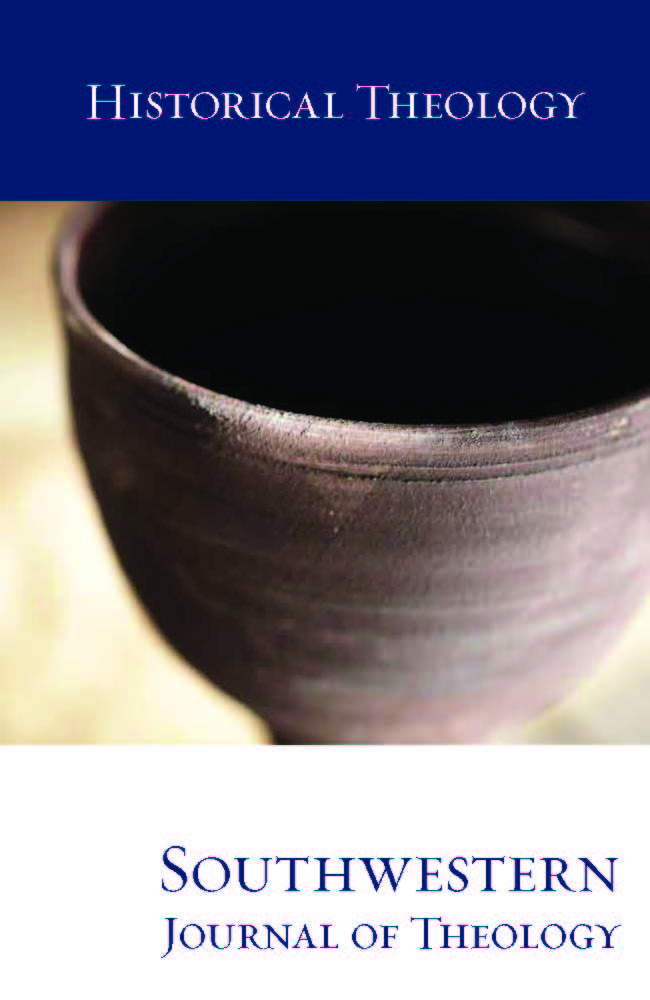
Historical Theology
Southwestern Journal of Theology
Volume 57, No. 2 – Spring 2015
Managing Editor: Terry L. Wilder
By Susannah Cornwall. London: SCM Press, 2013. viii + 195 pages. Paperback, $45.00.
There is no shortage of texts dealing with Christianity and sexuality today. Several decades ago, writing a book about the intersection of theology and sexuality would have drawn sharp criticism; however, today such work is becoming more commonplace across the spectrum of Christian traditions. In her latest work, Susannah Cornwall adds to her contributions in the field by surveying what Christian theology has said about sex, gender, and sexuality. Cornwall currently serves as postdoctoral research associate at the Lincoln Theological Institute at the University of Manchester. She has previously written on the topics of queer theology and intersex conditions.
It is difficult to characterize a book when the author acknowledges, “This book hasn’t set out to give definitive answers to questions about whether these expressions of sexuality are right or wrong” (161). Rather than attempting to build a theologically consistent sexual ethic, Cornwall desires to raise questions about traditional Christian responses to sexual issues and leave her readers to formulate answers on their own. However, the one consistent element to her questions and discussion is an attempt to undermine traditionally held sexual mores.
Cornwall begins by setting forth definitions and a brief survey of the influences on Christian views of sexuality. She makes clear from the beginning that sex, gender, and sexuality are three distinct terms. Sex refers to the biology of an individual, gender denotes an individual’s identity as a man, woman, or something else, and sexuality can be used to refer to both sexual orientation and how one interacts with the world (1-2). These definitions are important to how Cornwall uses the terms throughout her book. She also provides a look at the idea of essentialist and constructivist views of sexuality. She provides critique of both, which is interesting in light of later conclusions drawn in the book.
Much of the rest of the book is focused on specific issues related to sex, gender, and sexuality. Cornwall devotes chapters to various expressions of sexuality (homosexuality, transgender, intersex, etc.), celibacy and virginity, marriage, sex outside marriage, and same-sex relationships. In each case, she interacts with evangelical, Catholic, and mainline Protestant thought. She also tends to lead her readers away from accepting any sexual norms that have historically been promoted within Christian theology. For example, she endorses a distinction between “premarital” and “preceremonial” sex (102-05). Preceremonial sex takes place before the wedding ceremony but after there is some level of commitment on the part of the couple. It is unclear what level of commitment is necessary to move from one category to the next, but it is evident that the effect is to make sex before marriage less taboo.
Perhaps the most extreme example of undermining traditional sexual ethics is how Cornwall handles the issue of prostitution. While not giving it her wholesale endorsement, the research she provides consistently points her readers to look beyond the stigma of prostitution and consider how it could be a legitimate expression of human sexuality (112-16). She concludes the section on prostitution by asking the questions, “Would it be possible to construct a theological argument in favour of prostitution? What theological resources could you draw upon in constructing such an argument?” The author provides no questions directing her readers to consider the other side of the question.
At the heart of her argument is a desire to see a different Christian perspective on sexuality. She summarizes her concluding chapter by stating, “In the Conclusion, I’ll go on to suggest that all Christian thinking about sex and sexuality must happen in the context of the broader Christian story, and especially the conviction that a new and just age is coming and has already begun” (144). In her words, this new and just age is “sexchatological” in nature. Although she rarely draws conclusions on sexual norms that should be expected of Christians, she channels all her evaluation through an ethic of love, in essence adopting the situation ethics of Joseph Fletcher. This approach is not uncommon to contemporary works on sexual ethics that seek to change the landscape of Christian thought on sexuality.
At the end of the day, Cornwall’s book is insightful regarding the direction of scholarship on sexuality and theology. Evangelicals will often find it disconcerting as she moves away from Scripture and toward a more progressive acceptance of all sexual expression.





